Nanoforce, abridge between Academia and Industry,is an open-door industry-facing research and development company committed to delivering state of the art material solutions based on advanced processing technologies.
During 2018 NPU-QMUL Summer Camp, we were offered chances to visit Nanoforce in QMUL. It did not only help us learn academic knowledge, but also helped us see how to convert knowledge into products and apply it into real life.
Visiting the laboratories in Nanoforce was also an important part of these activities. Students saw many precise and advanced test instruments in the laboratory, which they had never heard before.
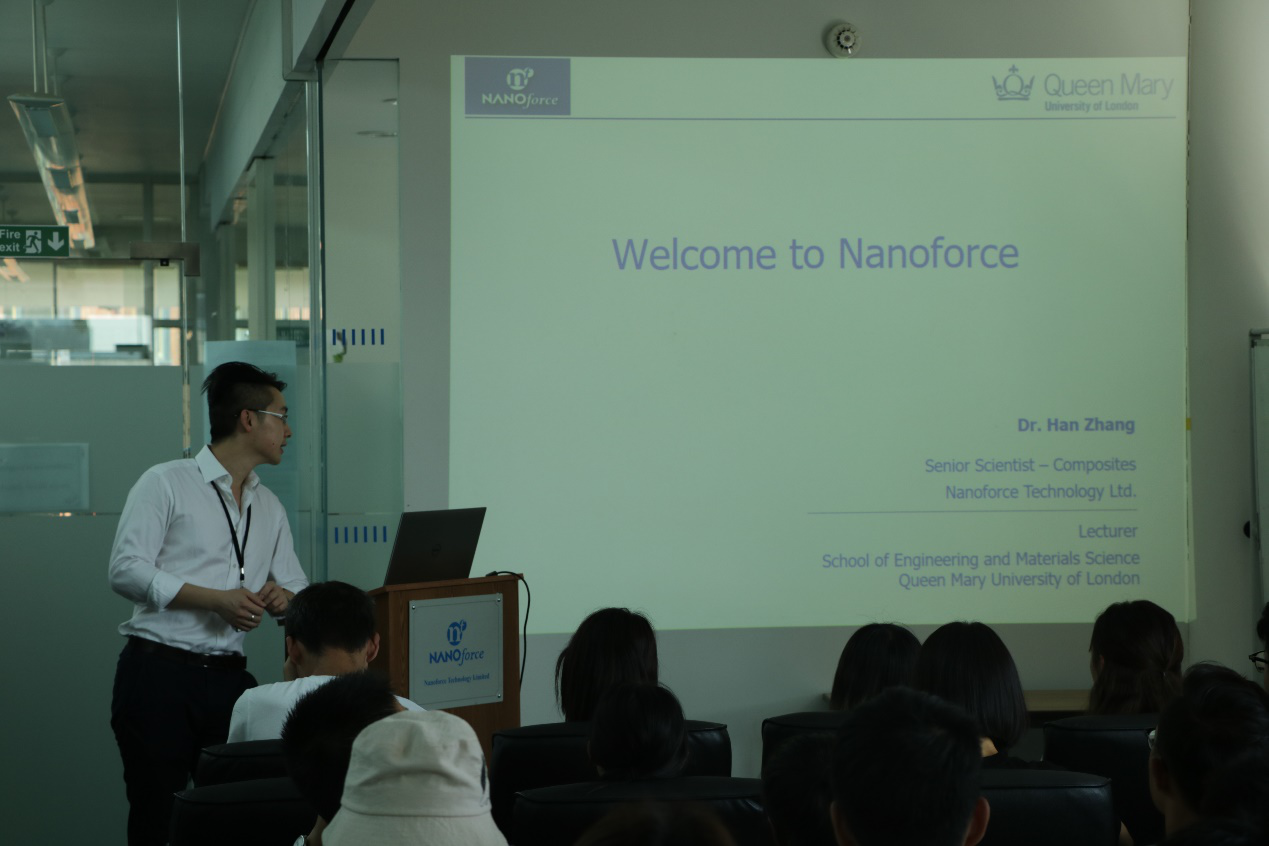

School of Engineering and Material Science, QMUL invited seven academic professionals to give presentations about material science engineering. These professionals developed their lectures in different aspects about their searching areas and displayed an interesting and exciting universe to students. They analyzed their lessons clearly and thoroughly by using visual aids and physical display. Meanwhile, these lectures included a wide range of fields,such as ceramics, thermoelectric, polymers, organic electronics, energy, solar photovoltaics and so on. Students learned a lot from these topics and the outstanding professors. These lectures not only broadened students' horizons, but also helped them understand more about their future academic development. What's more, the development of their interest helped them to choose their directions well.
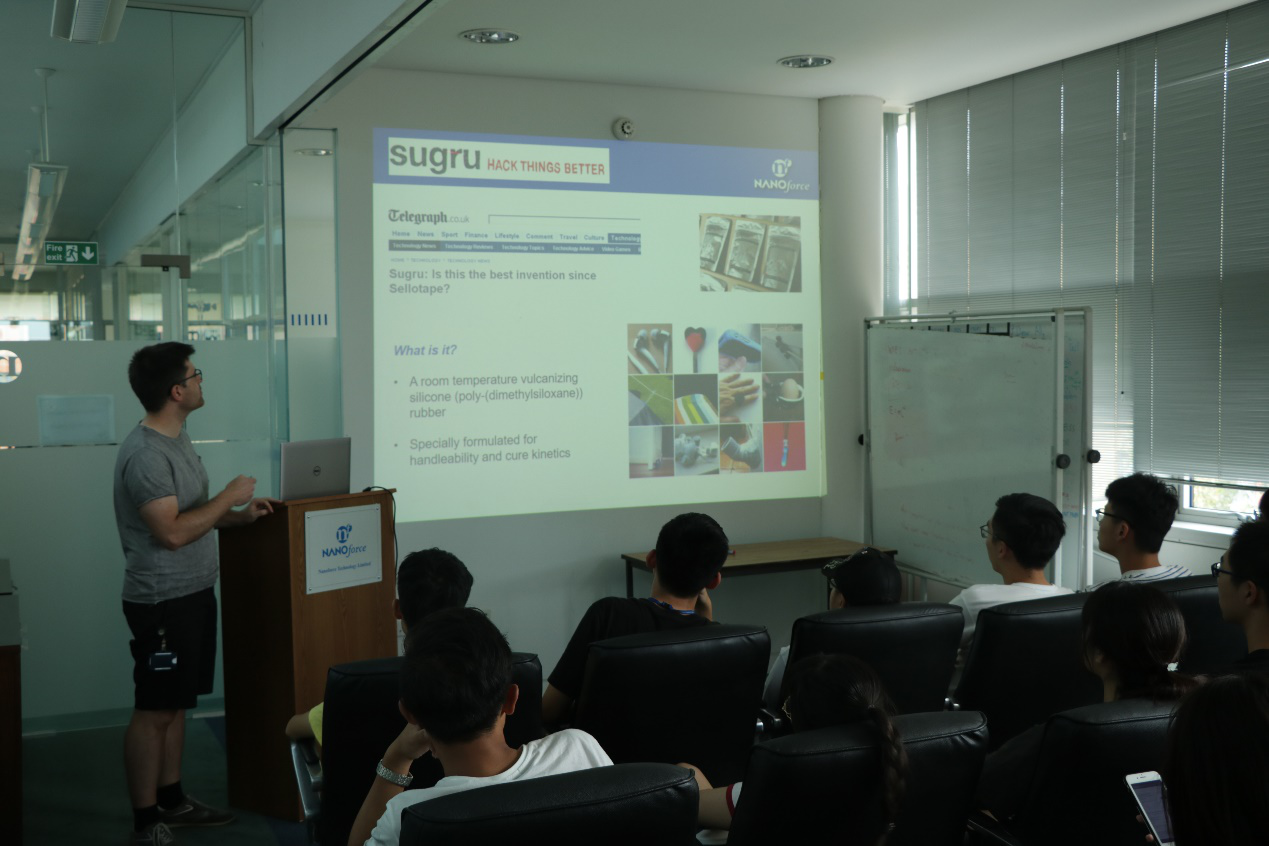
During these two-day-learning, we have seen more possibilities in material science and engineering. We recognized that there still exists huge space for further exploration. Almost every subject is interesting but difficult enough to search for a long time, even for a lifetime, but it is worthwhile. Although many of us have not decided our orientation about our major, these lectures truly open more doors for us about material science and engineering and widely broaden our horizon.
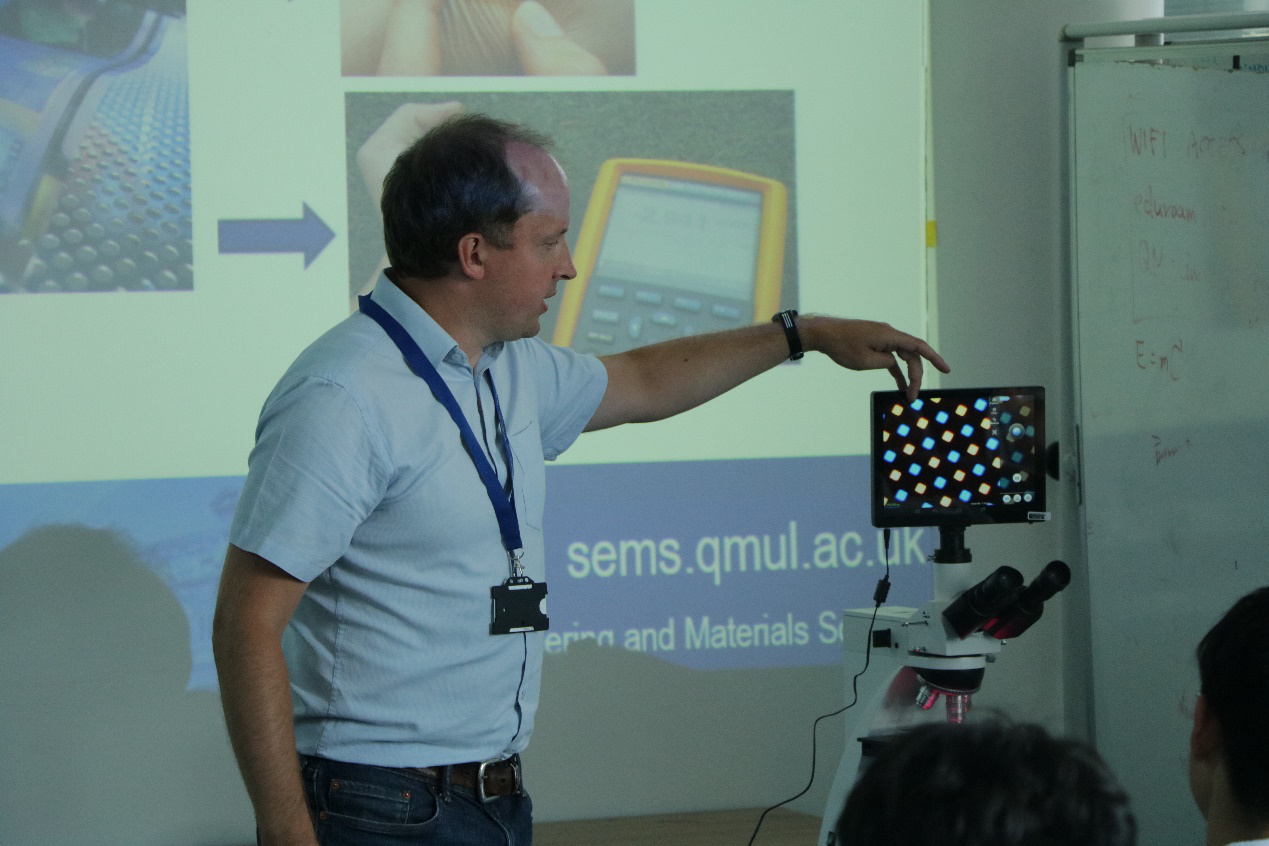
In our opinion, these scientists are genius in their subjects and they are friendly and patient to answer our questions. They also try their best to make us understand their topics as much as possible. In these lectures,they always find the simplest way to introduce the most difficult concept, and make the atmosphere active. Therefore, we can find charm both in the subjects and the scientists.
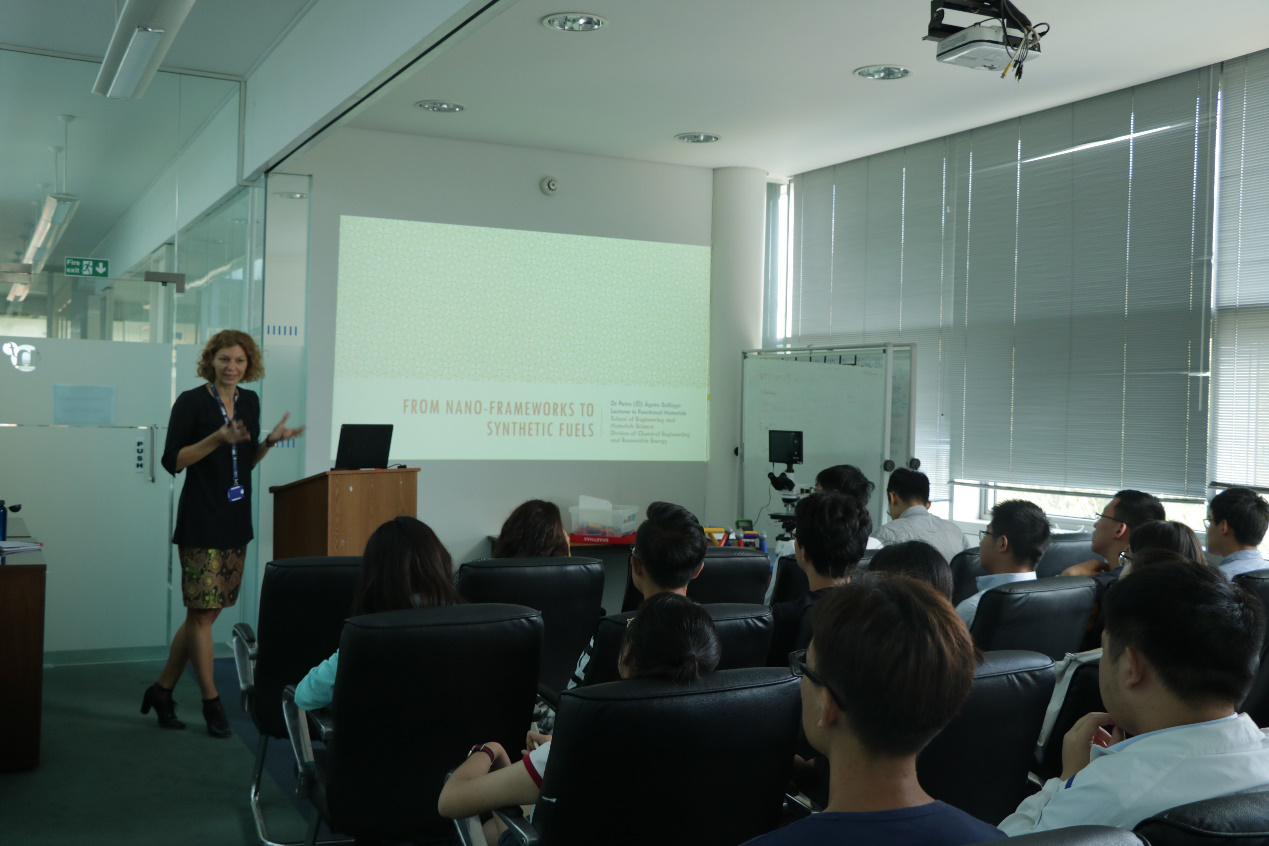
As the first-year QMES students, we encountered some difficulties in new terminologies, new knowledge, new concepts and ideas which are not familiar to us. However, future is beyond our expectation. In our belief, we will make rapid improvements and make breakthrough when developing our abilities.
What is more, thanks to the lab tour, we have got familiar with different kinds of instruments frequently used in ceramic and polymer areas. Some can heat matters to high temperatures in a short time, some can sense extreme shakes accurately and record them, and some can make full use of magnetic and electric field to make matters into a special state. They have aroused our interest in further study and reminded us of working hard to realize our dreams.

Interest is the best teacher. We totally fall in love with our major after the lectures, which isone of the biggest achievementsin this summer school.
These lectures were provided in a foreign method and were different with the lectures we had experienced before. This program offered us an opportunity to experience the diversity in learning patterns and to improve ourselves to become international talents.
Comparing the lectures between China and the UK, we found that classes in QMUL has more connection with the industry, while in China, we focus more on fundamental knowledge. Both the two models have strengths and weaknesses.

In China, students will have a solid foundation to help them form a profound understanding by thinking deeply and studying assiduously. While in the UK, students will have a wide range of knowledge with less difficulty. They emphasize the significance of interest and self-learning.
During these lectures, we tried to apply a new learning pattern quite different from the Chinese one and learn to think critically from new aspects by asking questions and exchanging ideas actively which made the lectures more meaningful and impressive.
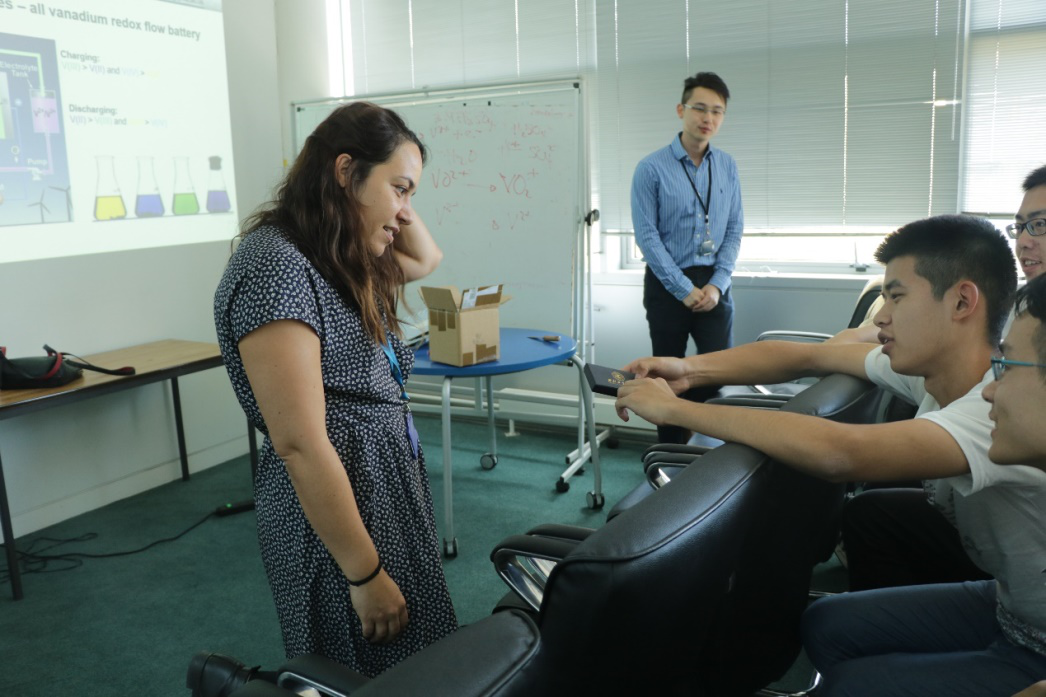
At present, the research and application of nanotechnology mainly goes to the fields of materials and preparation, microelectronics and computer technology, medicine and health, space and aviation, environment and energy,and biotechnology. Nano-materials are of lighter weight, stronger intensity, longer life, lower maintenance costs and they are more convenient to design. They can also be used to produce materials with specific properties or materials that do not exist in nature, as well as biomimetic materials and biomimetic materials.
Specifically, there is a field of Nano-electronics. They include Nano-electronic devices based on quantum effect, optical or electrical properties of nanostructures, characterization of Nano-electronic materials, atomic manipulation and atomic assembly. The current trend of electronic technology requires devices and systems to be smaller, faster, colder, and faster to respond. Colder means that the power consumption of a single device is low. However, smaller does not mean limitlessness. Nano technology is the final frontier of builders, and its impact will be enormous.
The application and economic prospect of nano technology is broad and great. In many aspects, it helps improve the quality of life. At present, many countries have drawn up related plans and have invested a large amount of money to seize the strategic opportunities of nano technology. The emergence of every new technology entails infinite possibilities.
As students in materials and polymer sciences, these courses benefited us greatly by stimulating our interest in material science, and make us full of expectations for future courses.
By Xinyu Yu, Jiasheng Zheng, Zexuan Zhang, Yiqing Liu